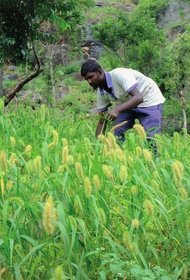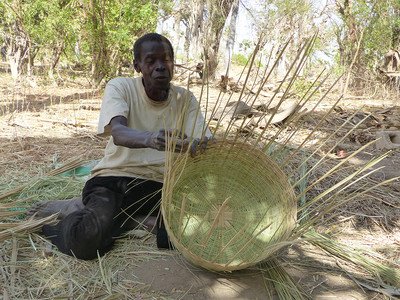Communities Regreen the Sahel
In various countries in the Sahel, vast tracts of land have been restored by the local population by nurturing what spontaneously springs from the soil and protecting the sprouts from cattle and hazards.
Today, 41% of the global land area is covered by “drylands” such as deserts, grasslands and savannahs, and this area is ever expanding. The majority of the people who live in these drylands are dependent on natural resources, on land cultivation and on livestock-rearing. Healthy ecosystems, land and natural resources are therefore critical for dryland populations. However, some 70% of the world’s drylands are affected by degradation.
Land degradation in the Sahel
In the drylands of the Sahel, land degradation is one of the biggest threats to the traditional livelihoods of millions of people. In Niger, Burkina Faso and Senegal, countries which are highly affected by droughts and food insecurity, the loss of productive and fertile land threatens the livelihoods of both farming communities and pastoralists.
Unsustainable agricultural practices, notably the cultivation of non-indigenous and irrigated crops, as well as overgrazing, are major drivers of land degradation. This process is exacerbated by changes in climate that cause even more erratic rainfall patterns, longer periods of drought and unpredictable growing seasons. As a result, conflicts between farmers and pastoralists over access to water, land use for cultivation and grazing grounds are intensifying, to which the current policy frameworks do not have an effective answer.
Turning the tide
However, there are promising initiatives to turn the tide. In various countries in the Sahel, vast tracts of land have been restored by the local population by nurturing what spontaneously springs from the soil and protecting the sprouts from cattle and hazards. Both ENDS and local partners in Niger, Senegal and Burkina Faso support this ‘Farmer Managed Natural Regeneration (FMNR)’ which enables the tree and shrub vegetation to recover. This successful low-cost, low-technology and farmer-led method enhances local food security and ecological stability in the long run. The ownership lies with local people through the establishment of Village Committees, which form the backbone of Farmer Managed Natural Regeneration. With this 10-year programme, Both ENDS and our local partners aim to create all the necessary conditions for a snowball effect for Farmer Managed Natural Regeneration on a large scale in these three countries, as the ‘proof of concept’ has already been delivered there.
Protecting seedlings
An important factor for successfully introducing Farmer Managed Natural Regeneration in the community, is an agreement between village farmers and other land users like cattle herders and nomadic populations on land use and the protection of seedlings from ‘cattle & axe’, especially during the first period of 3 to 4 years. The reward is a growing resource cake for all, with reciprocal benefits: pastoralists gain access to more biomass (fodder), while the farmers gain access to the herds’ manure (droppings left behind).
Government support & market access
Effective Farmer Managed Natural Regeneration the Sahel also requires, besides the adoption of methods by local land users, an enabling environment in terms of governance and access to markets. By having local authorities participating in the training sessions, organising field visits for them and update councillors and village chiefs on the progress of the FMNR-activities, local formal and customary policy-makers get involved in the project activities, and are more likely to support and adopt these initiatives.
Communities Regreen the Sahel
The current programme 'Communities Regreen the Sahel - Growing buffers to ensure food security, livelihoods and biodiversity Programme 2017-2027' is funded by DOB Ecology. More information about the programme can be found here: Communities Regreen the Sahel
More information about the method
This infographic tells shows the method in a nutshell.
This brochure about Farmer Managed Natural Regeneration explains more details about the method.
Should you want more information about regreening the Sahel and/or other regions, please contact Fiona Dragstra or Stefan Schüller.
Read more about this subject
-
Transformative Practice
Farmer Managed Natural Regeneration
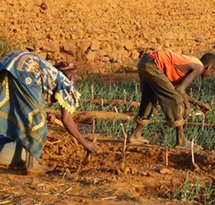
In various countries in the Sahel, vast tracts of degraded land have been restored by the local population by nurturing what spontaneously springs from the soil. They do this using a method called 'Farmer Managed Natural Regeneration (FMNR)'.
-
Transformative Practice
Inclusive Land Governance
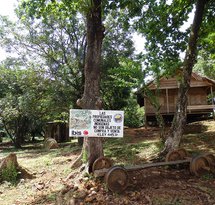
Both ENDS works with partners around the world to ensure that land is governed fairly and inclusively and managed sustainably with priority for the rights and interests of local communities.
-
Dossier
Inclusive ways to sustainable and healthy food for all
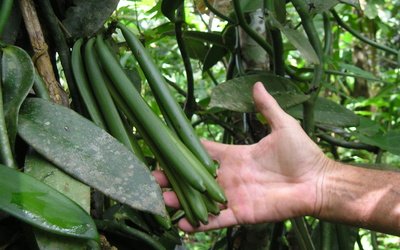
All around the world small-scale farmers are using sustainable and inclusive methods to produce food. Working together with nature and each other, they provide their families and communities with sufficient and healthy food. But their production methods are under pressure from large-scale agriculture and the globally dominant system of industrial food production. Together with our partners, Both ENDS is trying to turn the tide in favour of sustainable, local practices that are mostly known as 'agro-ecological' or 'nature-inclusive'. Why are we focusing on these methods? Agro-ecological practices are climate-proof and inclusive and increase the opportunities for communities around the world to produce their food sustainably.
-
Dossier
The merits of community-based restoration
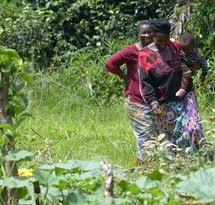
Globally, the area that is suffering desertification and land degradation is ever expanding. Unsustainable and often large-scale agricultural practices, including the copious use of pesticides and fertilisers, are a major driver of land degradation, aprocess that is further exacerbated by climate change, causing more erratic rainfall patterns, longer periods of drought and unpredictable growing seasons. This is very problematic not only for the hundreds of millions of people who directly depend on land and water for their livelihoods, but also for life on earth as a whole. It is clear that this process must be stopped and reversed, better sooner than later. But how to go about it?
-
Dossier
Rich Forests
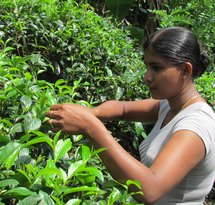
Rich Forests promotes a sustainable and future-proof production system and supports, among other things, the transformation of degraded land into food forests. With this, people provide for their livelihood, increase their income and at the same time restore soil and biodiversity.
-
Dossier
Participatory Land Use Planning (PLUP)
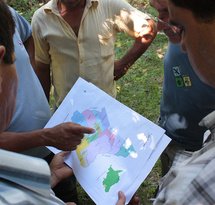
Participatory Land Use Planning (PLUP) is a rights-based approach ensuring inclusive and gender-responsive land governance, especially for those whose rights to land are not fully acknowledged.
-
Dossier
Small Grants Big Impacts
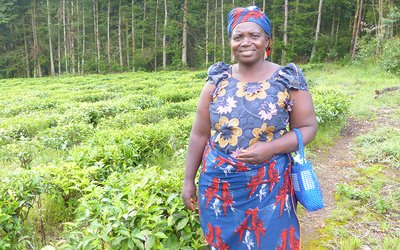
Small grants funds offer an effective, alternative way to channel big money from large donors and funds to local groups and organisations that are striving for a sustainable and just society everywhere around the world.
-
News / 13 October 2023
Water is life, water is food: World Food Day 2023
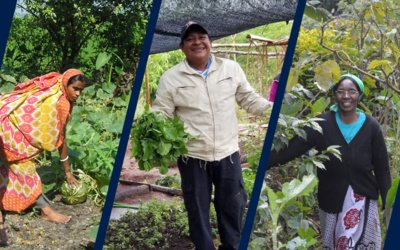
"Water is life, water is food" is this year's theme for World Food Day. Our partners around the world know all too well that this is a very true sentence. To celebrate World Food Day 2023 this October 16th, we'd like to show a few examples of how our partners fight for the right to water and this way, contribute to local food sovereignty at the same time.
-
News / 15 June 2023
Combating drought by protecting saplings
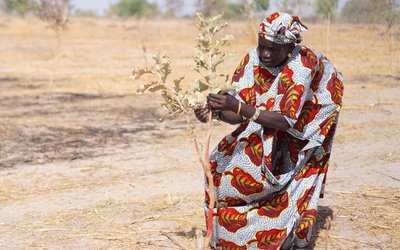
Koussanar, in eastern Senegal, is a small town that is expanding rapidly, surrounded by villages still rooted in rural and nomadic life. The region is hot and dry, which is exacerbated by climate change. The soil in the region is also dry and often exhausted due to a combination of factors such as unsustainable agricultural practices, (peanut) monoculture, intensive agriculture, forest fires and overgrazing. Today, however, the region's farmers and nomadic pastoralists take a different approach. They are working towards a better future by committing to the restoration of degraded land using Farmer Managed Natural Regeneration (FMNR).
-
News / 14 June 2023
Both ENDS’s partners combat land degradation and drought
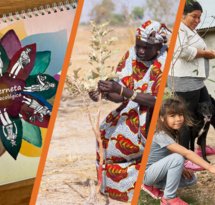
For decades, the local partner organisations of Both ENDS have been developing and promoting ways to fight land degradation, desertification and drought in their surroundings. And this accounts not only for regions like the Sahel, but also for forests and wetlands. To celebrate the UNCCD's Desertification and Drought Day 2023, we'd like to show a few examples of how our partners restore ecosystems to serve the well-being of people and the environment.
-
Press release / 21 April 2023
Manifesto: The Netherlands can reduce its international footprint with new Agricultural Agreement
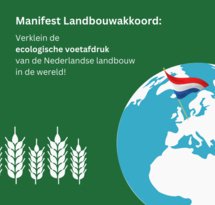
The Dutch Agriculture Agreement, which is currently under development, is too much focused solely on the Netherlands. That is the opinion of a broad coalition of more than sixty NGOs, farmers' organisations, scientists and companies that have today sent an urgent letter to agriculture minister Piet Adema and foreign trade and development minister Liesje Schreinemacher. The government's agricultural policy should also aim to reduce the Netherlands' enormous agrarian footprint beyond our borders, by taking food security and the preservation of biodiversity as its starting points. The coalition has published a manifesto in which it sets out how reform of the Netherlands' foreign agricultural policy could be given shape.
-
Press release / 7 March 2022
New report: investment in agroecology necessary for healthy global food system
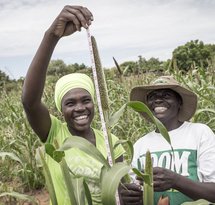
A recent study by Profundo for Both ENDS and Oxfam Novib shows that investment in agroecology is necessary for a sustainable and inclusive global food system. Today, some 768 million – one in ten – people suffer from hunger or a severe shortage of food on a daily basis. Conflict, economic stagnation caused by the Corona epidemic, and the climate crisis present an immediate threat to the production of and access to sufficient nutritious food. Agroecology, a form of agriculture that places small-scale farmers, the natural environment and short supply chains at the centre of food production, makes communities in developing countries more resilient and helps them combat hunger. The study concludes however that major donors, including the Netherlands, are so far providing insufficient support for agroecology.
-
Event / 7 December 2021, 14:00 - 15:15
WEBINAR: EU's push for strong Intellectual Property Rights (IPR) on seeds
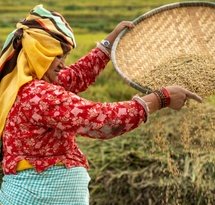
The European Union's (EU) foreign trade policy has many implications for the sustainability of food systems in developing countries, heavily impacting farmers, breeders, and citizens. The unhidden promotion by the EU of strong intellectual property rights on plants affects food systems from its very basis, i.e., the seeds that are available for farmers to grow. Amongst these intellectual property rights, the main instrument that is advocated by European authorities is the 1991 Act of the UPOV Convention, which provides exclusive rights to breeders over the propagating material of new plant varieties, while diminishing the rights of others to use the material for further breeding and hampering with the rights of farmers to freely save, use, exchange and sell their seeds.
-
Publication / 29 November 2021
-
News / 30 September 2021
Agroecology in Kenya: fighting water pollution while securing food production
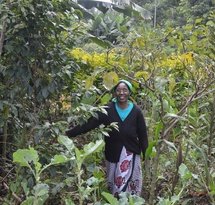
About 75% of Kenyans earn all or part of their income from the agriculture sector which accounts for 33% of the country's Gross Domestic Product (GDP). However, agricultural productivity has stagnated in recent years. Various factors have contributed to low agricultural productivity, including an overall decline in soil fertility because of the continuous removal of nutrients by crops; poor farming practices; land degradation and overuse/misuse of synthetic fertilizers that acidify the soil. The solution against these problems is: agroecology.
-
News / 27 September 2021
Analog Forestry: sustainable food production with a feminist perspective
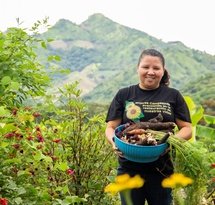
In times of ecosystem degradation, deforestation and climate change, rural communities often struggle to make a living in a healthy and autonomous way. One of the solutions to counter their problems is Analog Forestry, a sustainable practice promoted by many of Both ENDS's partners. We spoke to Carolina Sorzano Lopez*, Analog Forestry trainer from Colombia for the International Analog Forestry Network (IAFN), and Luz Marina Valle*, a local Analog Forestry promotora in her community of El Jocote in Northern Nicaragua, to explain to us the advantages of Analog Forestry.
-
News / 17 September 2021
Beyond trees: the importance of Non-Timber Forest Products for communities
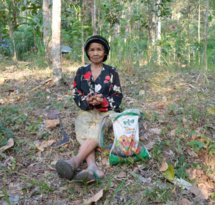
About one in every six people, particularly women, directly rely on forests for their lives and livelihoods, especially for food. This shows how important non-timber forest products (NTFPs) and forests are to ensure community resilience. Not only as a source of food, water and income, but also because of their cultural and spiritual meaning.
-
News / 19 August 2021
Violet Matiru: “Communities around colonial Ruiru I Dam still struggle”
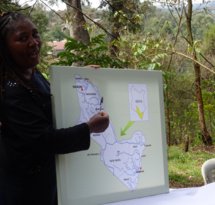
After many years of advocating for strong environmental policies at international platforms such as the UN, Kenyan Violet Matiru asked herself: "How does all this lobbying trickle down to our communities? How does this help our mothers who are still struggling with fetching water and cooking on wood stoves?" This is when she and her colleagues founded MCDI Kenya (Millennium Community Development Initiatives) and started to work with local communities. We talked to her about the historical and current power imbalance in water governance and her efforts to improve water governance in the Athi River basin, that runs all the way from upstream of Nairobi, through the city, into the Indian Ocean.
-
News / 13 August 2021
Food sovereignty in the polders of Southwest Bangladesh
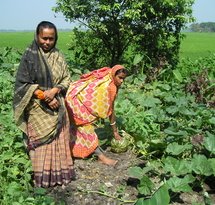
The situation in the southwest delta of Bangladesh is critical. Because of sea level rise, floods are increasing and the area is about to become uninhabitable, despite Dutch-style dikes and polders built in the previous century. Partner organisation Uttaran works with local communities on climate-friendly solutions that restore the living environment and give the inhabitants a say about their future and food production.
-
News / 29 June 2021
Fighting desertification in the Brazilian Sertão
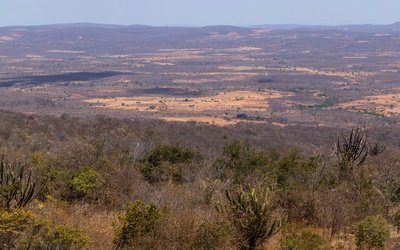
The farmers in the Sertão do Araripe region in Pernambuco state are smart. The small-scale family farmers know that securing a sustainable livelihood on the rich but vulnerable soils of the Sertão is only possible if they take good care of the environment. That means sound agriculture, making the best of every drop of available water, diligent use of natural fertilisers and pest-control and fighting for laws and policies that stimulate conservation rather than exploitation. The organisation CAATINGA helps the farmers to face the challenging conditions.



